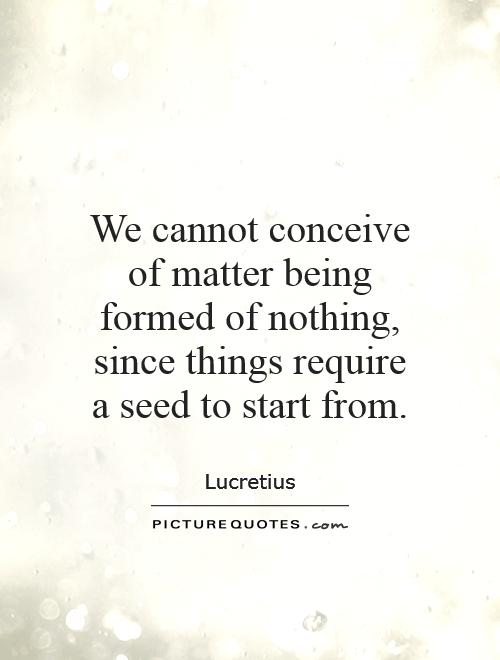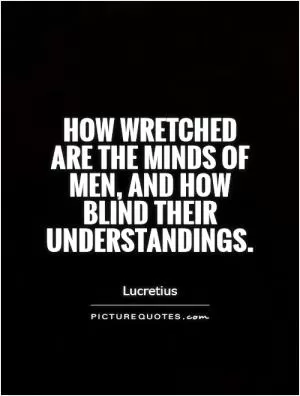We cannot conceive of matter being formed of nothing, since things require a seed to start from

We cannot conceive of matter being formed of nothing, since things require a seed to start from
In the context of Lucretius, a Roman poet and philosopher who lived in the first century BC, the idea that matter cannot be formed from nothing is a fundamental principle of his philosophical beliefs. Lucretius was a proponent of the philosophy of Epicureanism, which emphasized the pursuit of pleasure and the avoidance of pain as the highest good in life. Central to Epicurean philosophy is the belief that the universe is made up of atoms and void, and that all things are composed of these fundamental building blocks.Lucretius argued that matter cannot be created out of nothing because everything in the universe must have a cause or a seed from which it originates. In his epic poem "De Rerum Natura" (On the Nature of Things), Lucretius explores the nature of the universe and the origins of matter, arguing that the universe is eternal and that matter has always existed in some form. He rejects the idea of creation ex nihilo, or creation out of nothing, as a nonsensical concept that goes against the principles of reason and logic.
According to Lucretius, the universe is made up of an infinite number of atoms that are constantly moving and interacting with each other in a vast void. These atoms combine and recombine to form all the objects and beings that we see in the world around us. The idea that matter requires a seed to start from is central to Lucretius' understanding of the natural world, as it reflects his belief in the inherent order and structure of the universe.
Lucretius' rejection of creation ex nihilo is also tied to his rejection of supernatural explanations for the origins of the universe. He believed that the universe operates according to natural laws and principles, and that everything can be explained through the study of nature and the observation of the world around us. By emphasizing the importance of reason and observation in understanding the natural world, Lucretius sought to challenge traditional religious beliefs and superstitions that attributed the origins of the universe to divine intervention.












 Friendship Quotes
Friendship Quotes Love Quotes
Love Quotes Life Quotes
Life Quotes Funny Quotes
Funny Quotes Motivational Quotes
Motivational Quotes Inspirational Quotes
Inspirational Quotes